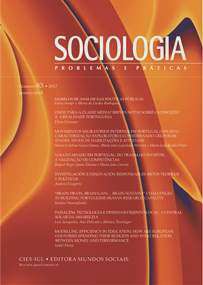Modelling efficiency in education: how are European countries spending their budgets and what relation between money and performance
DOI:
https://doi.org/10.7458/SPP2017836496Keywords:
education efficiency, public expenditure, PISA Scores education effectivenessAbstract
Aggregate expenditure in education was compared to PISA’s scores (2012) as a mean of understanding how money link to performance. We analysed global education expenditure, teachers’ pay, class size and number of teaching hours, infrastructure and teaching resources investment in European countries. Four groups of efficiency / effectiveness are proposed based on the combination of expense versus results. The author concludes that the most effective countries are Poland, Slovenia and Czech Republic, as they achieve top results with moderate investment. There are also some countries where desired score is achieved, though a lot of money is being spent. The remaining countries do not achieve desired scores and therefore are neither efficient nor effective, though Sweden and Norway spend a lot of money for very poor results, and are therefore the most inefficient countries.
Downloads
Published
Issue
Section
License
Authors who publish in this Journal must agree the following terms and conditions:
- Authors retain copyright and grant the Journal the right to first publication, while simultaneously agreeing to a Creative Commons Attribution License, which allows others to share their work on condition that they cite the original author(s) and recognise that the latter’s work was first published in this Journal.
- Authors are authorised to enter into additional contracts separately, for non-exclusive distribution of the version of the work that is published in this Journal (e.g. publication in an institutional repository or as a book chapter), subject to recognition of initial publication in this Journal.



